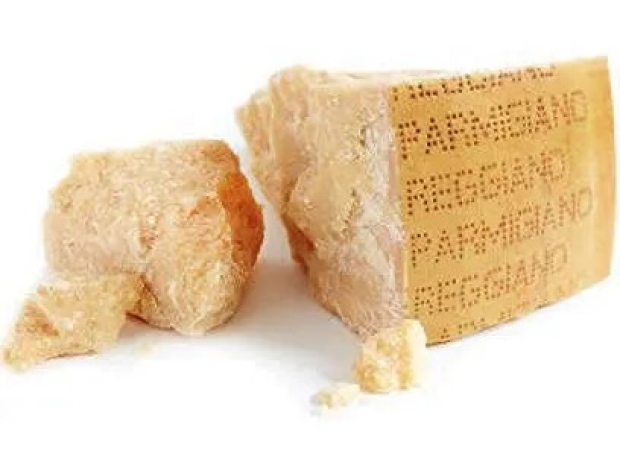Parmigiano-Reggiano will have microchips on their 90-pound cheese wheels as part of an endless cat-and-mouse game between makers of authentic and fake products.
The new silicon chips, made by Chicago-based p-Chip, use blockchain technology to authenticate data that can trace the cheese as far back as the producer of the milk used.
The chips have been in advanced testing on more than 100,000 Parmigiano wheels for more than a year. The consortium of producers wants to be sure the chips can meet Parmigiano's ageing requirement, which is a minimum of one year and can exceed three years for some varieties.
The p-Chips can withstand extreme heat or cold, can be read through ice and can withstand years of storage in liquid nitrogen. They have outperformed RFID chips, which are larger, can be challenging to attach to products, are more fragile and can't survive extreme temperatures, according to p-Chip Chief Technology Officer Bill Eibon. Parmigiano producers also use QR codes, which are easily copied and degraded during the cheese's ageing process.
A robot heats the Parmigiano wheel's casein label — a small plaque made of milk protein widely used in the cheese industry — and then inserts the chip on top. A hand-held reader can grab the data from the chips, which cost a few cents each and are similar to the ones some people have inserted under their pets' skin.
The chips can't be read remotely. In lab tests, the chips sat for three weeks in a mock-up of stomach acid without leaking any dangerous material. Eibon went a step further, eating one without suffering any ill effects, but he isn't touting that lest p-Chip face accusations it is tracking people, something that isn't possible because the chips can't be read remotely and can't be read once they are ingested.
Merck KGaA will soon be using the same chips, the article points out, and the chips "are also being tested in the automotive industry to guarantee the authenticity of car parts.

